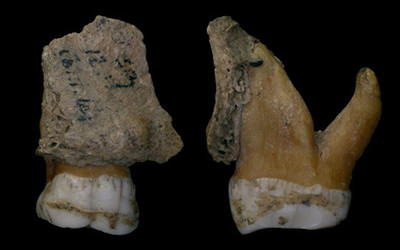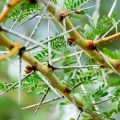PTE考生目前最大的问题之一就是练习题缺乏。除了有限的基本官方书(PLUS,Testbuilder, OG)之外就没有题了。很多英语基础不是很扎实的同学很难找到练习材料。悉尼文波雅思PTE培训学校专门为澳洲,尤其是悉尼、墨尔本的PTE考生准备了适合PTE听力阅读练习的科学60秒。各位PTE同学可以练习PTE听力中的summarise spoken text和PTE口语中的retell lecture,练习记笔记技巧和复述。
听力内容:
60秒科学节目(SSS)是科学美国人网站的一套广播栏目,英文名称:Scientific American – 60 Second Science,节目内容以科学报道为主,节目仅一分钟的时间,主要对当今的科学技术新发展作以简明、通俗的介绍,对于科学的发展如何影响人们的生活环境、健康状况及科学技术,提供了大量简明易懂的阐释。
This is Scientific American — 60-Second Science. I’m Christopher Intagliata.
The paleo diet—it’s pretty trendy. Eat like a caveman, no dairy, grains, sugar and so on. But what you probably won’t find on many paleo plates today?
“Pine nuts and moss and tree bark and mushrooms.” Laura Weyrich, a paleo microbiologist at the University of Adelaide in Australia. “What we would like to call the true paleo diet. It’s basically what you could
find in a forest if you’re not eating meat.”
Weyrich and her colleagues cleaned the teeth of Neandertals found in
Belgium and Spain. They popped off bits of ancient dental plaque, then sequenced the DNA
contained within, to see if it matched up to any known sequences today.
What they found suggests that the northern Neandertals ate a meat-heavy diet: including woolly rhino and wild sheep. Whereas their southern counterparts ate
that forest-foraged vegetarian fare: mushrooms, pine nuts and moss. One of the
Spanish specimens also appeared to have taken a tree-derived painkiller, related to aspirin—and might have self-medicated with antibiotic penicillium bacteria, too.
And the Neandertals’ mouth microbiome, on average, resembled
that of chimps more than modern humans. “They have a much healthier set of bacteria in their mouths as well. They don’t have the nasty bacteria in the right proportions to chew holes
in their teeth and cause periodontal disease. They really were very healthy.” Their teeth, she says,
are still sparkly white today. The study is in the journal Nature.
Perhaps the most intriguing finding though, might be that humans and
Neandertals appeared to swap mouth microbes at one point in time…something that Weyrich says probably happened not through violent interactions, but when kissing or sharing food.
“I think this paper in general just really suggests that Neandertals
weren’t like this caveman brute grunting-type animal they’re often described as. They had knowledge about medicines,
they had knowledge about their environments, about what they could eat,
and they were having friendly interactions with other species. So it’s a very different
picture of Neandertals.”
Thanks for listening for Scientific American — 60-Second Science Science. I’m Christopher Intagliata.
墨尔本悉尼霍巴特文波PTE原创首发
更多精彩请持续关注微信wenbo_tv3。





